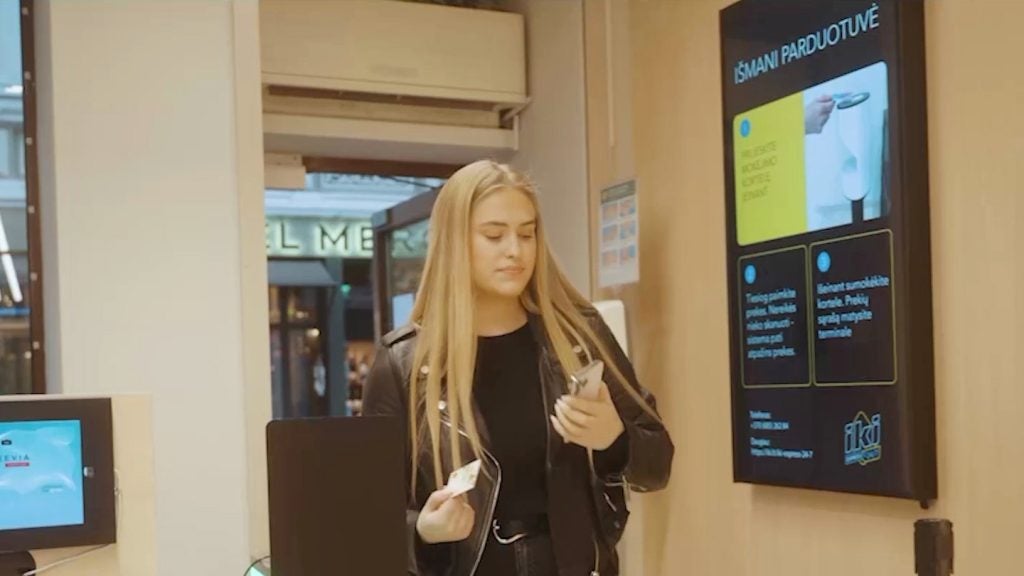
Francesco Simoneschi is the CEO of the UK’s latest unicorn, TrueLayer. Simoneschi founded the fintech developer platform together with CTO Luca Martinetti in 2016.
Since then, the company’s application programming interface (API) has been used to power some of the Europe’s most successful fintechs, including neobanking tridecacorn Revolut. However, the startup boss believes the open banking revolution is just getting started.
“What is exciting is where open banking is about to go,” Simoneschi tells Verdict.
For the uninitiated, open banking refers to the smooth and secure sharing of data between financial institutions like banks, insurers and startups. By making it easier to access data, the idea is that customers can access better services as it will even the playing field for innovators of all sizes.
Technological developments and regulatory changes have driven this push, as highlighted by a recent thematic research report from GlobalData.
TrueLayer is smack in the middle of the evolution of open banking. While the company and its peers have up until now predominantly focused on supporting financial services firms, the TrueLayer CEO believes open banking can soon be used by tech companies outside of the traditional fintech space.
How well do you really know your competitors?
Access the most comprehensive Company Profiles on the market, powered by GlobalData. Save hours of research. Gain competitive edge.

Thank you!
Your download email will arrive shortly
Not ready to buy yet? Download a free sample
We are confident about the unique quality of our Company Profiles. However, we want you to make the most beneficial decision for your business, so we offer a free sample that you can download by submitting the below form
By GlobalDataIn the past, he’s made an argument that open banking could, for instance, be used for businesses like Spotify, which arguably has a better understanding of the artists on its platform than insurers and traditional lenders. Leveraging their data with open banking could, therefore, potentially create new revenue streams and better financial solutions.
Now, Simoneschi believes TrueLayer has already kick-started this trend with its recent partnership with Cazoo, the UK online car retailer.
“Our latest partnership with used car marketplace Cazoo is a good example of the ambition in the ecommerce space and what will ultimately bring open banking to the mainstream,” he says. “One of the products underpinning the Cazoo partnership is Payouts, which has just launched allowing for instant refunds and helping to bring down costs related to processing cards.”
But this, the TrueLayer CEO argues, is only the beginning. He points to the UK Competition and Markets Authority’s (CMA) recent decision to force UK banks to implement variable recurring payment (VRP) APIs to enable customers to sweep money between accounts.
Sweeping is the automatic transfer of money between a customer’s own accounts. This could, for example, be a transfer where excess funds are put into a separate savings account or using them to repay a loan or overdraft account.
“It is open banking’s equivalent of direct debits,” Simoneschi says. “That lays the foundation for interesting use cases that will make money management, subscriptions and much more a simpler process. That is exciting because it has the potential to move us from the first phase of open banking and into open finance.
“It could provide merchants with an important alternative to direct debit and credit cards, offering the same flexibility, but with lower fees, no chargebacks, immediate settlement, reduced risk of fraud and enhanced control for consumers. That could potentially see VRPs used for several types of recurring payments, including digital and physical subscriptions such as Spotify, card-on-file payments used in ride sharing and food delivery apps, and repeat invoices.”
This week, TrueLayer raised $130m in a funding round that pushed its valuation past the coveted $1bn line. The funding round comes hot on the heels of it opening a European office in Dublin in August, a move Simoneschi says was accelerated by Brexit.
“We have built a large and rapidly growing customer base in Europe, for example with investment platform HeyTrade in Spain, so we were always planning to have a European entity but Brexit accelerated those plans,” the TrueLayer CEO says. “London remains our corporate HQ but Dublin serves as our European hub, from a regulatory point of view to serve clients across the EU member states.”
TrueLayer picked Dublin as its European base for two reasons. Firstly, it houses a thriving tech hub. Big Tech firms like Google and Facebook have their European HQs in the city. Several fintech heavyweights – such as Square, Stripe and Coinbase – also have offices in the city.
“That means it is also an ideal location for us to find the people we’ll need to scale our businesses,” the TrueLayer CEO says. “You can see that in the leadership team we have put in place with Joe Morley our general manager for Europe and Leigh-Anne Cotter our COO, who both joined us from WhatsApp.”
The second reason is that Irish regulators like the Central Bank of Ireland are closely aligned with that of UK market watchdogs like the Financial Conduct Authority. This, Simoneschi argues, “ensures a sound regulatory process while also acknowledging and embracing innovation by supporting firms like ours to deliver improved services to consumers and businesses.”
Speaking of Stripe, the American payment processing giant was one of the investors backing TrueLayer’s new $130m funding round. The new round comes just months after TrueLayer raised $70m in April. However, the company founder rejects the notion that the startup was forced to raise more funds because it was running out of money.
“No, the round is a reflection of our rapidly scaling business and the size of the opportunity in instant payments is immense,” he says. “For example, Juniper Research data estimates the value of instant payments will exceed $27.7tn in 2026, representing a 470% increase from the $4.8tn recorded in 2021.
“So it’s no surprise that investors are taking a strong interest in us as we are leading that change through open banking instant payments. We’ve witnessed huge growth in open banking payments over recent months – TrueLayer has seen 400% growth in payment volume and 800% growth in monthly payment value as we’ve expanded across Europe and doubled our customer base.”
The funds will fuel TrueLayer’s global ambitions, including hiring more talent to join its London, Dublin and Milan offices. The unicorn will also use the capital injection to recruit new country managers across Europe. While it is growing across the continent and elsewhere around the world, a US expansion is not on the cards just yet.
“We are always reviewing the growth of open banking globally, whether that’s in Brazil, Canada or Australia where we’re already scaling our business,” the CEO says. “The US is still a very fragmented market but the current administration is making a push to introduce open banking which we are following with interest.
“Europe is still very much our focus. We have been hiring country managers and have 95%+ coverage in all of the major European markets. We are looking at further European coverage expansion, launching new products and services in the market to really drive the use of open banking across the continent before the end of 2021.”
When it comes to open banking, Simoneschi says that while the UK “is still 12 months or so ahead of Europe on open banking”, other countries are catching up. Banks across Europe are already implementing more robust APIs for data and payments.
“In France, Germany and Spain, banks are improving authorisation flows and that is improving payments conversion rates,” he says.
“They are also beginning to embrace app-to-app flows that don’t take customers through multiple screens and authorisation steps that often lead them to abandon the process. We are also in a continual dialogue with European banks and regulators to further improve bank API reliability and eliminate some of the issues we see from bank API downtime, which impacts the customer experience.”




